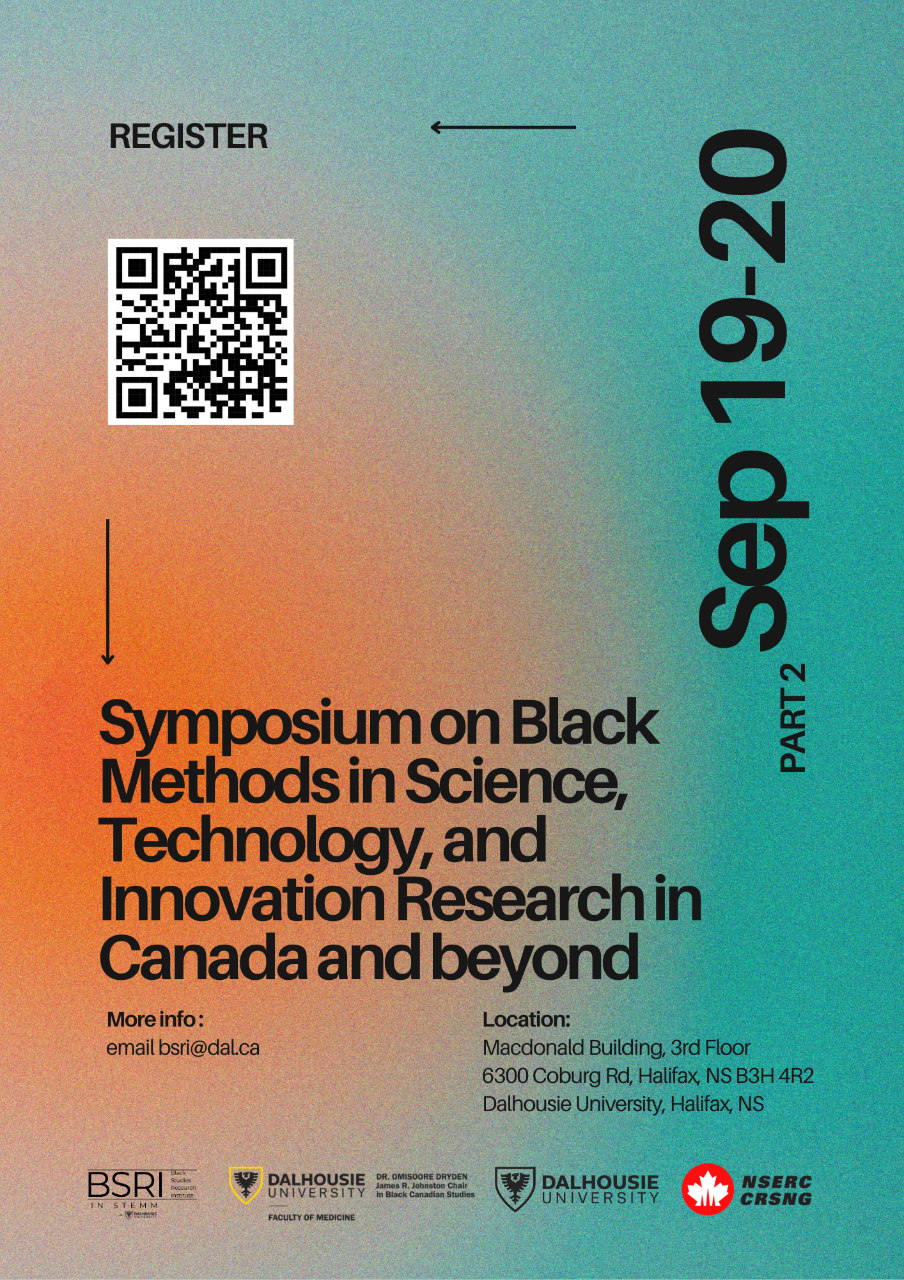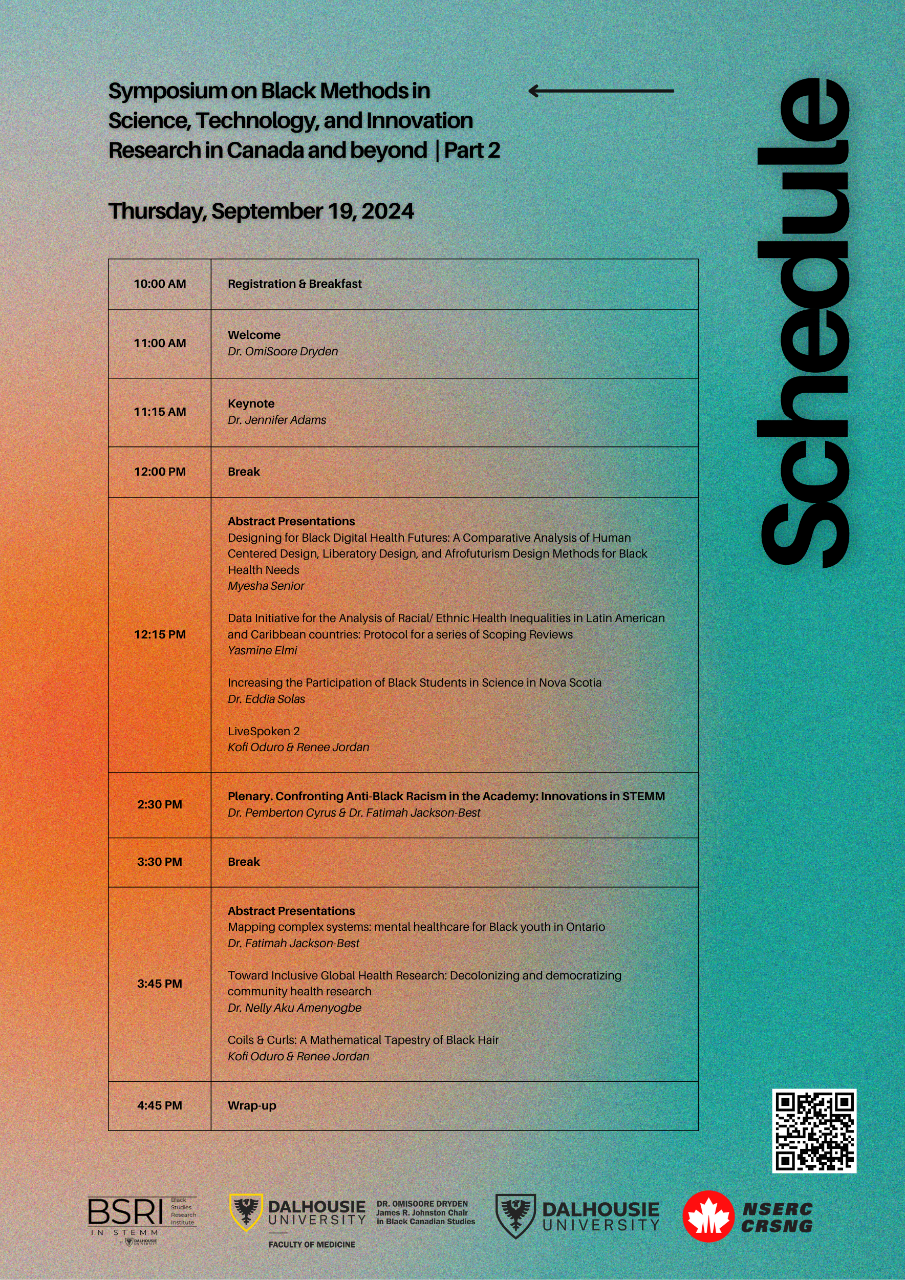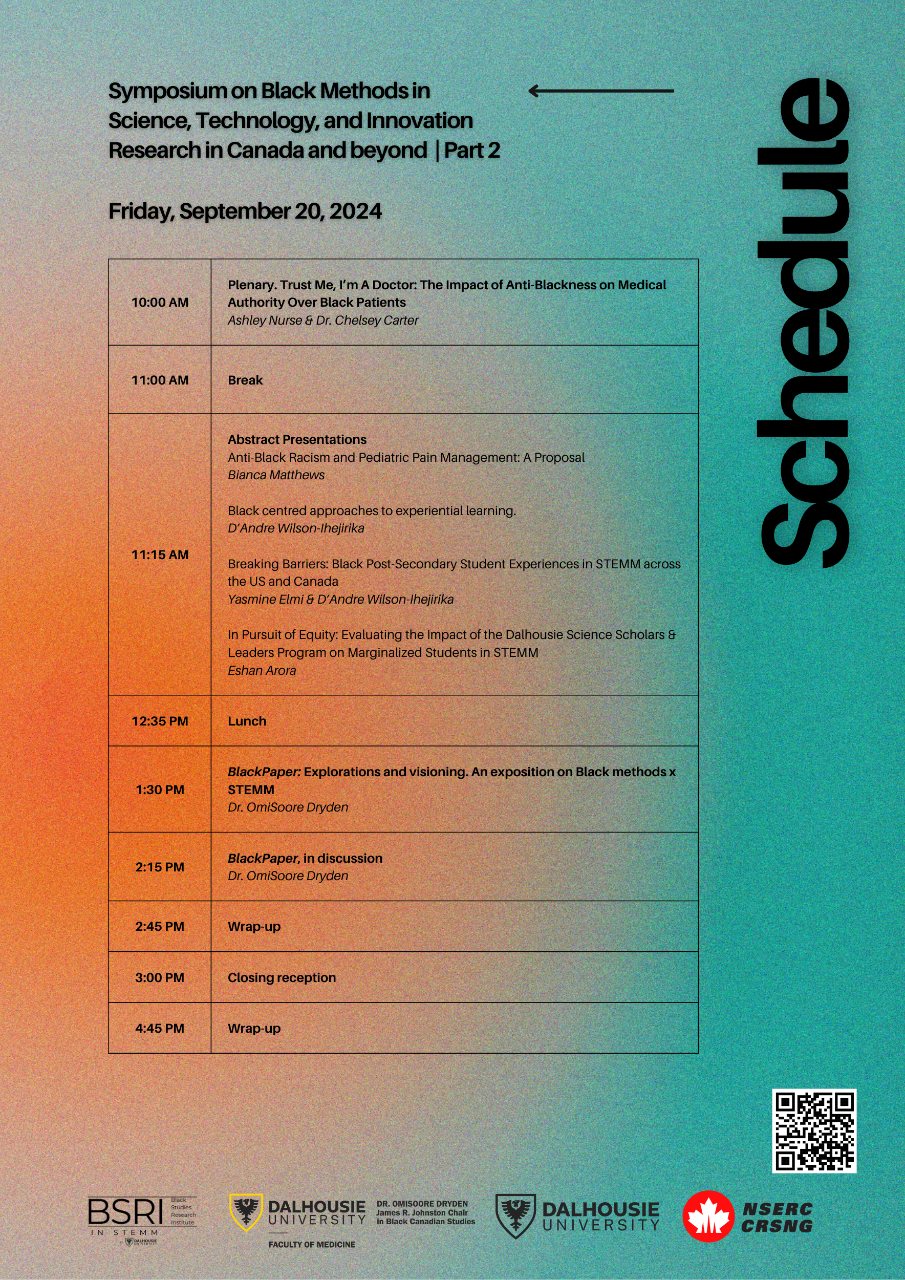Black Studies Research Institute (in STEMM)

When:
- September 19, 2024 from 10:00am - 5:00pm
- September 20, 2024 from 10:00am - 4:00pm
Location: Hybrid
- In-person: Macdonald Building, 3rd floor, University Hall, 6300 Coburg Rd, Halifax, NS B3H 4R2
- Online: MS Teams link provided upon registration
Hosted by: Black Studies Research Institute (in STEMM) & the James R. Johnston Chair in Black Canadian Studies, Dalhousie University
Funded by Next Wave Fund, Dalhousie University & the Natural Sciences and Engineering Research Council of Canada
Check out the FULL PROGRAM and The BlackPaper!
Join Dr. OmiSoore Dryden, James R. Johnston Chair in Black Canadian Studies at Dalhousie University’s Faculty of Medicine and Interim Director of the Black Studies Research Institute (in STEMM) for the second installation of the Symposium on Black Methods in Science, Technology, and Innovation Research in Canada and Beyond.
Black Studies is a vast discipline that exists beyond and in conversation with the humanities and social sciences. Black Studies is a necessary intervention into all fields of science in Canada, which advances discussions on the quality of life of all Canadians. This is crucial given that evidence illustrates that Black populations are disadvantaged. Science – natural, physical, and life sciences – does not live outside of society and culture. The development of scientific technology, procedures and practices happened (and happens) within the social/cultural. Black Studies in science, technology, engineering, mathematics, and medicine (STEMM) interrogates the parameters of what constitutes objective, “colourblind” science and the surrounding systems in which we exist. The myth of racism-free STEMM fields is deadly.
This symposium builds on Black Studies in STEMM, the impact of Black Radical traditions on STEMM, Black liberatory spaces in STEMM, African Nova Scotian thought and practices in STEMM, and the contribution of Afrofuturism to the future STEMM writ large. This forum presents an opportunity for Black scholars and researchers to better understand the specific role of structural violence in scientific research, protocols, and policies that have increased the vulnerability of Black populations to poorer outcomes.
Part 2 of the symposium furthers conversations from the first installment held on February 22-23, 2024. This is a space for scholars, researchers, practitioners, engineers, technicians, social entrepreneurs, students, community members, and change agents to gather and share their innovative methodologies in STEMM that engage with and centre Black Studies, research findings, and exchange resources, whilst also strategizing collaboratively on ways forward that impact in diverse Black communities.
The main objectives of the symposium are to:
a) Improve existing and emerging methodologies to advance Black studies, particularly in STEMM, addressing anti-Black racism within research, policies, and practices in the natural sciences and engineering;
b) Support scholars and researchers who are interested in the intersection between Black Studies and STEMM; and
c) Create and further collaborations in Black Studies and STEMM in the Atlantic and across the country.
The symposium will host plenaries, innovation showcases, and panel discussions to catalyze growing dialogue and knowledge exchange in Black Studies and in STEMM disciplines.
Our speaker lineup will be announced via social media. Follow @BSRIxSTEMM on X (formerly twitter) to stay up to date.
Registration open until Friday, September 13, 2024: https://forms.office.com/r/9gZh8v812d
Questions? Reach out to BSRI@dal.ca


